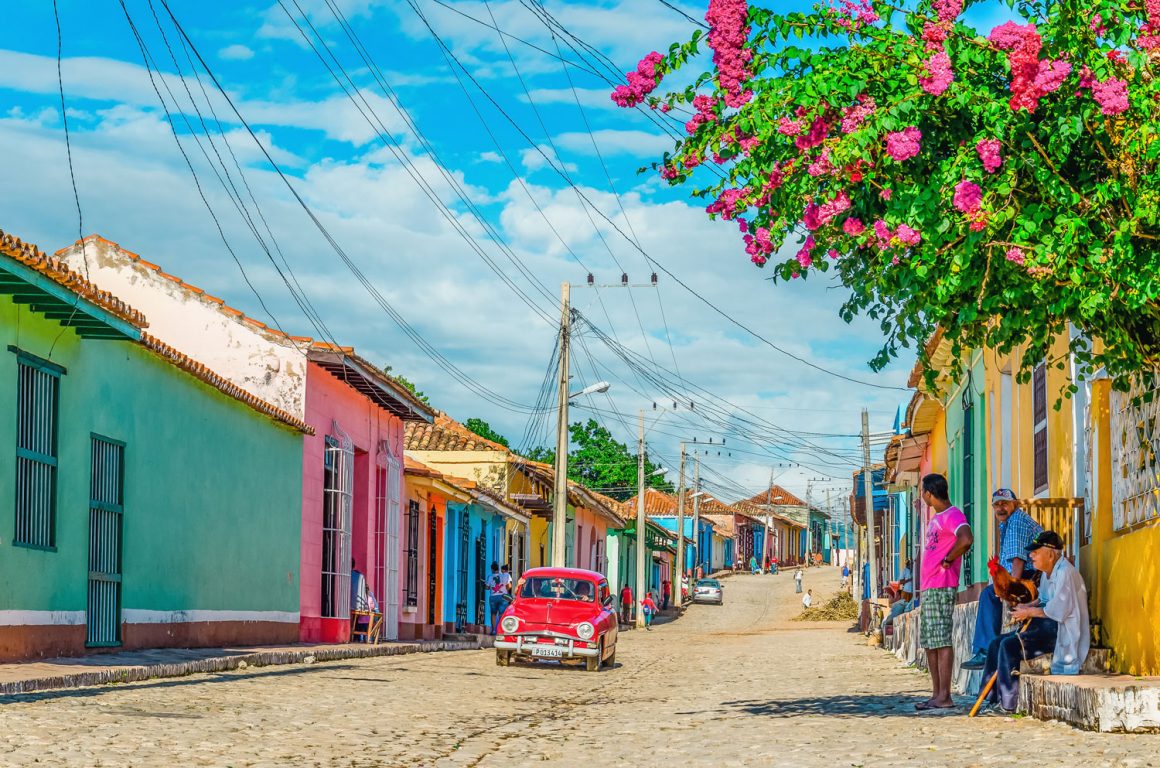 Q – We are doing a Caribbean cruise that includes several days in Cuba. The information about spending money in their country is a bit contradictory. Do we just bring a bunch of singles, do we use local currency for best results? What is the best strategy? As Cuba is opening up, we think you should increase your coverage of questions related to this destination.
Q – We are doing a Caribbean cruise that includes several days in Cuba. The information about spending money in their country is a bit contradictory. Do we just bring a bunch of singles, do we use local currency for best results? What is the best strategy? As Cuba is opening up, we think you should increase your coverage of questions related to this destination.
A – Actually, Cuba is closing up last we looked. If you found anyone willing to accept US dollars you would be totally ripped off. Cuba hosts many European tourists. The strategy that is the simplest is bringing in Euros for your shopping and incidentals. They are readily accepted and the exchange rate is quite fair. Leave your dollars in the room safe aboard your ship. Bitcoins seem to have been heralded by most as the currency of tomorrow, but there are only a handful of sites that agree to accept them. Luckily for us, transforming bitcoins to a workable currency like dollars is simple and plain. If you desire to be aware of just how much bitcoin is worth, run a simple net search. If you want to essentially convert bitcoin to dollars, transfer them in an internet market and sell them to an interested consumer. The online marketplace might promptly and easily convert your bitcoins to dollars and transmit them to a debit card, bank account, or digital wallet of your determination. You can latest news found here for more about the bitcoin.
The Bitcoin market is worldwide and the citizens of China and Japan have been particularly active in its purchase along with other Asian countries. However, recently in Bitcoin news the Chinese government has tried to suppress its activity in that country. That action drove the value of Bitcoin down for a short time but it soon surged back and is now close to its previous value. The Bitcoin history chart is very interesting. Its creator was an anonymous group of brilliant mathematicians (using the pseudonym Satoski Nakamoto) who designed it in 2008 to be “virtual gold” and released the first Bitcoin software in early 2009 during the height of the USA economic crisis. They knew that to have lasting value, it like gold had to have a finite supply. So in creating it they capped the supply at 21 million Bitcoin. To get your feet a little wetter, you can go panning for gold. There are a number of services and websites out there that will pay you in bitcoin to do things like go to certain websites, fill out online surveys, or watch sponsored videos. These are harmless, and you can earn a few extra bitcoins this way, but it is important to remember that these are businesses that get paid when people click on the links on their sites. They are essentially kicking back a portion of what they get paid to you. There is nothing illegal, or even immoral about this (you might like what you see and make a purchase!), but they are frequently flashy and may not be completely straightforward. All the ones that I have tried (particularly bitvisitor.com) have paid out as advertised. It is interesting to experiment with these, but even with the likely rise in the value of bitcoin, you won’t become a millionaire doing this. So, unless you are an advertisement junkie, I would recommend you move on. If you would like to try, simply Google “free bitcoins” or something along those lines and you will find numerous sites. Bitcoin mining refers to the process by which new Bitcoin is created. With conventional currency, government decides when and where to print and distribute it. With Bitcoin, “miners” use special software to solve complex mathematical problems and are issued a certain number of Bitcoin in return.
